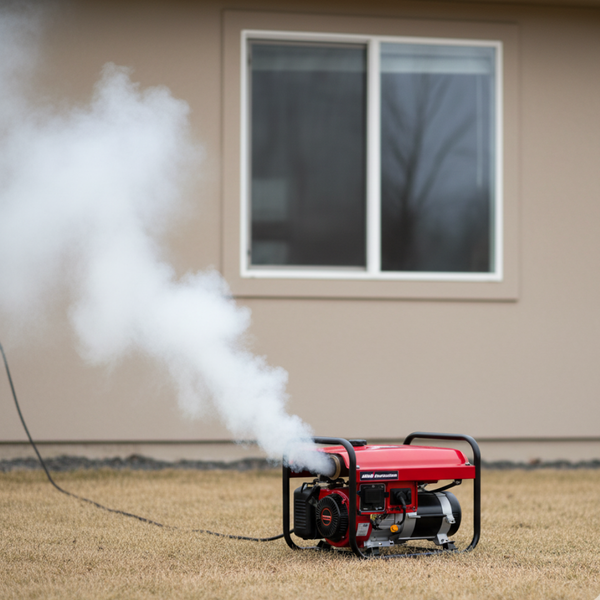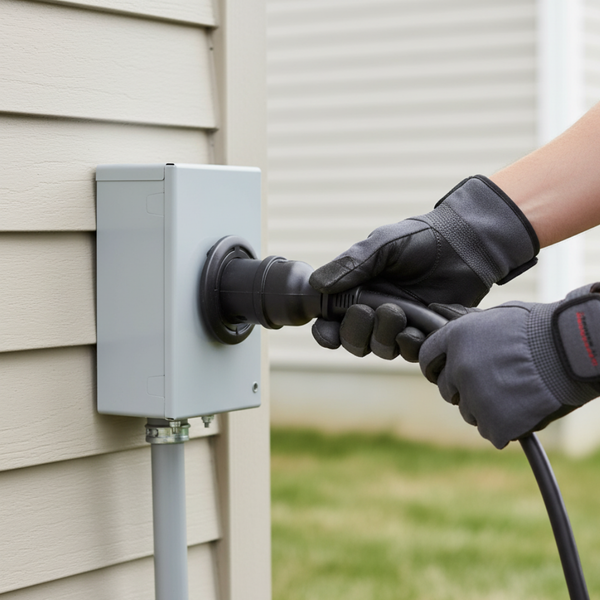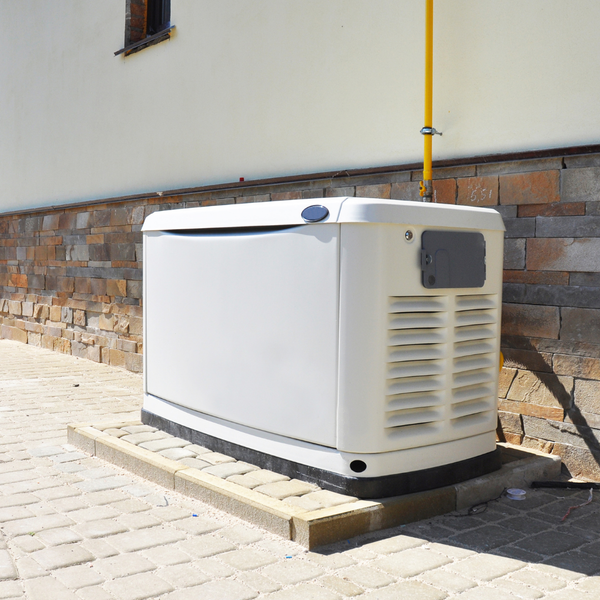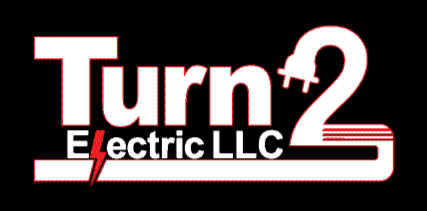Using a house generator for backup power during a storm is critical, but safety must be your absolute top priority. Mismanaging a generator poses serious risks, including deadly carbon monoxide (CO) poisoning and electrocution. Turn2 Electric ensures your family’s safety with these four essential steps for reliable, safe operation.
How to Safely Operate Your Generator During a Power Outage

Never Operate Generators Indoors or Too Close to Your Home
CO gas is an invisible, odorless killer. Always position your generator a minimum of 20 feet away from your home, ensuring the exhaust is directed away from all doors and windows. Never run it in a garage, basement, or partially enclosed area. This simple placement rule saves lives.

Use the Correct Extension Cords and Avoid Backfeeding
Connecting your generator properly prevents electrical hazards. Use only heavy-duty, outdoor-rated extension cords sized for the load. Crucially, never plug your generator directly into a wall outlet (backfeeding), as this can electrify utility lines and shock workers. Turn2 Electric strongly recommends installing a transfer switch for safe connection.

Handle and Store Generator Fuel Sources Responsibly
Treat all fuel (gasoline or propane) with extreme caution. Store it in approved containers, well away from the operating generator and any ignition source. Never refuel a hot or running generator; turn it off and let it cool completely to prevent instant ignition from spilled fuel.

Conduct a Quick Pre-Operation Inspection Before Every Use
Prior to starting your generator, perform a fast safety check: inspect the oil and coolant levels, check for any loose or damaged cords, and confirm the unit is on a dry, level surface. Regular maintenance by professionals like Turn2 Electric ensures reliable, safe performance.
Operating your generator safely is easy with these guidelines. As a Generac and Kohler certified dealer, Turn2 Electric offers transfer switch installation and preventative maintenance to secure your peace of mind.
